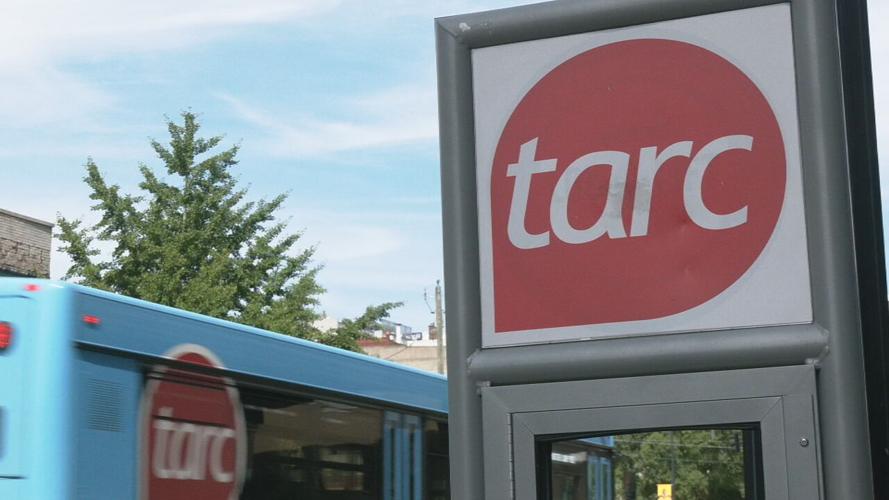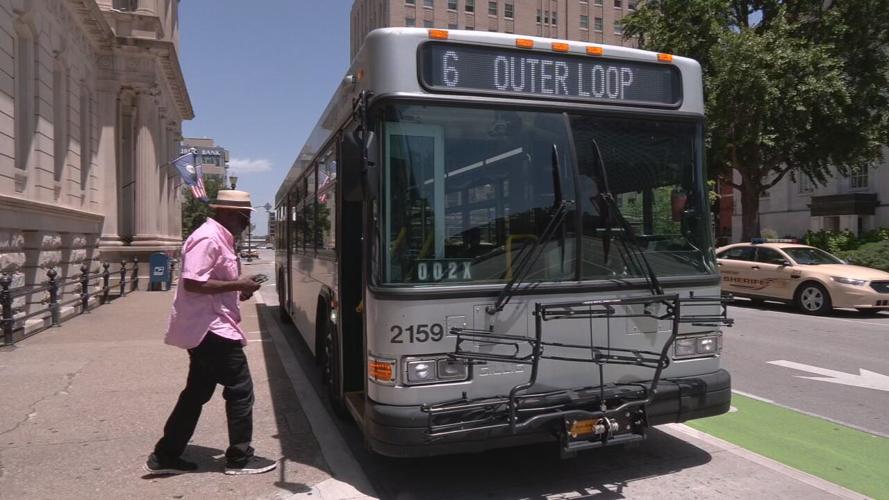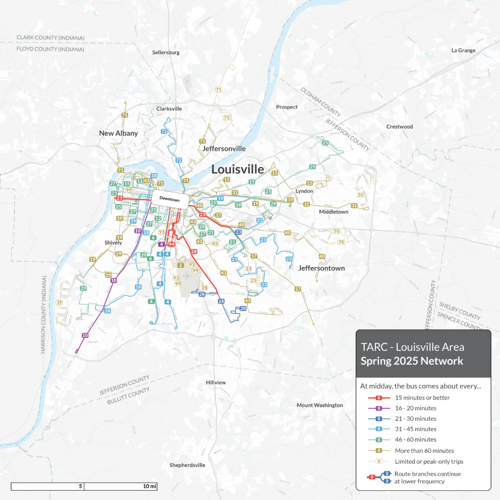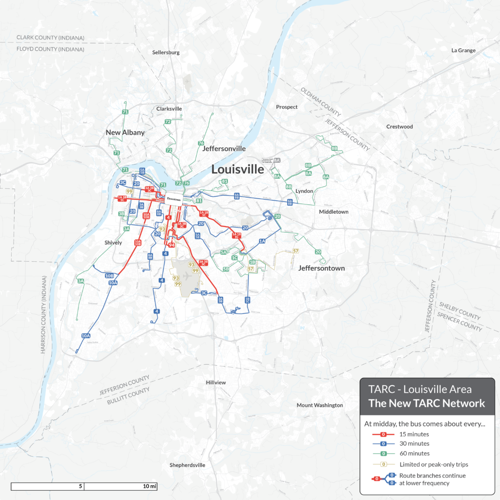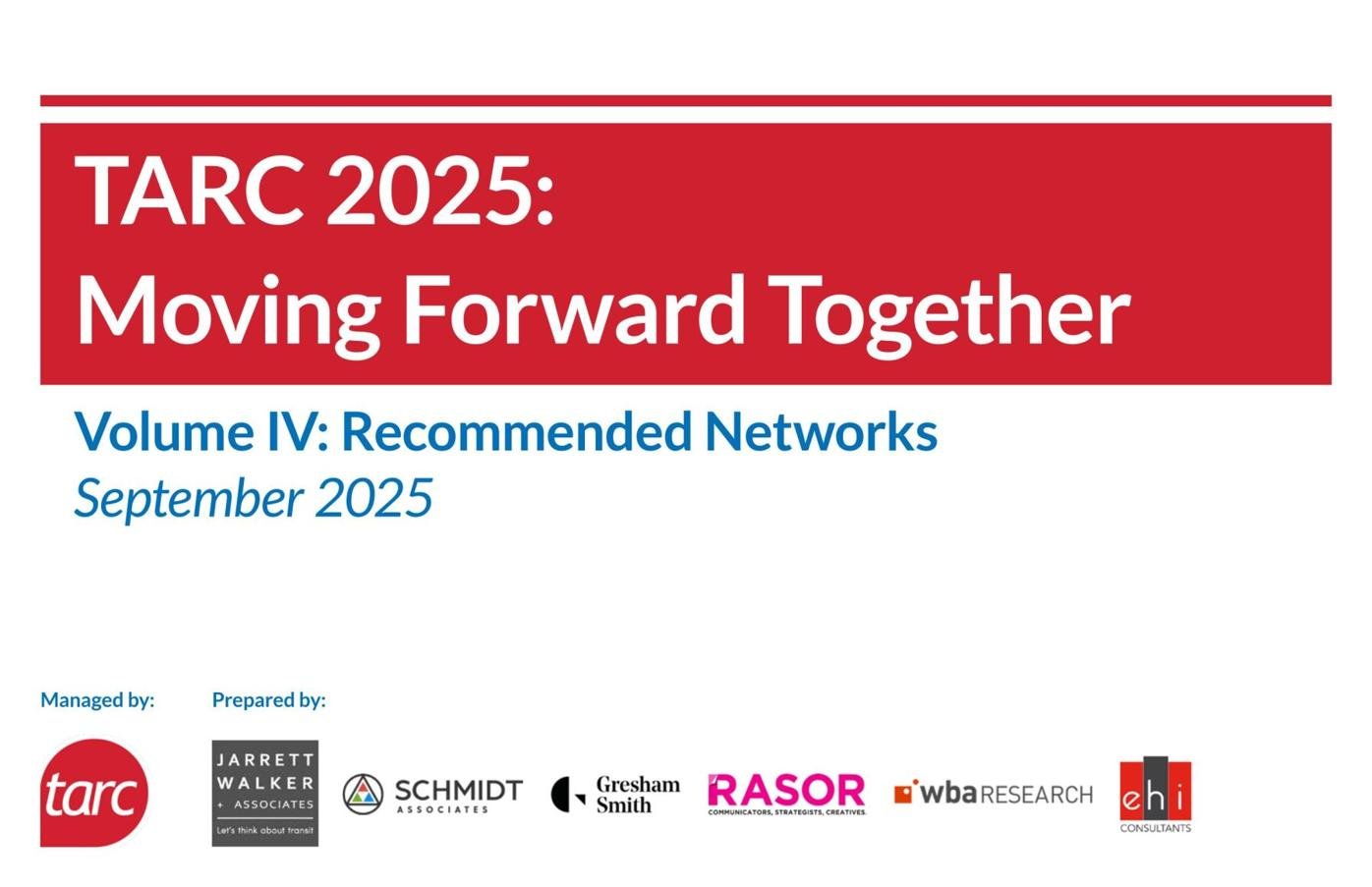LOUISVILLE, Ky. (WDRB) -- After months of gathering public feedback, Transit Authority of River City unveiled its final recommendation for a new network of routes for Louisville Tuesday afternoon.
TARC plans to implement the new network in August 2026. While the new plan includes "major changes to most TARC bus routes and schedules," leaders said no major service changes are planned before it takes effect.
Officials said the expected start date will give riders months to prepare for the changes.
"The New TARC Network is a core part of the new TARC," Ozzy Gibson, executive director, said in a news release. "The New TARC Network will be better than the current system we have, and deliver on the most important customer priorities while allowing TARC to continue to reduce costs and address the financial challenges facing the agency."
At the beginning of 2024, TARC projected a $30 million deficit by the fiscal year 2027 if action wasn't taken before then.
Because of the financial challenges it has faced, the agency launched TARC 2025 to ensure long-term sustainability for Louisville transit. TARC is striving to restore its pre-2020 service levels, but with federal funding no longer available, and not enough existing local and state funding for transit to cover current service levels, leadership has spent months gathering rider feedback to shape the future of public transportation in the region.
In June, TARC released information it received during the TARC 2025 Draft Plan phase of gathering public feedback. A majority of riders surveyed said TARC's highest priorities should be increasing service frequency and maintaining existing service levels.
The agency said one of the top community priorities that came from the public feedback it received is more frequent service. The new network, officials said, will bring changes to where buses go and how often they come, putting buses in areas where riders say more frequent stops are needed. TARC said the changes will bring a "simpler and more efficient bus network."
TARC said the new network is a result of the TARC 2025 process in which it gathered public feedback on several redesign proposals to create a new plan that meets public priorities and needs with the funding available.
One of those proposals was called the Enhanced Network, the goal of which is to improve access to major employers and Jefferson County Public Schools' magnet programs. TARC said the Enhanced Network was preferred by those surveyed, and provided the foundation for the New TARC Network.

TARC's countywide network as of spring 2025 (left), compared to the New TARC Network countywide map (right). TARC said the new network is a "more frequent, connected network that relies on mostly 15 and 30 minute routes." When compared to the Spring 2025 network, TARC said the New TARC Network is "more useful" for Louisville riders, reducing duplicate routes and routes over one-hour in frequency. (TARC maps)
"As far as the routes that are coming back, we would need more funding for that," said Gibson. "Or if we get into this system and for some reason we have a route that's not showing the ridership, then we would get back with the MTA and make those adjustments."
Also in the new plan, TARC said stops will be three blocks apart on average—as opposed to the current one to two blocks—giving riders "more reliable service" and the ability to catch a bus at their current stop or one "very close by."
The network implements a new "pulse" system it will rely on, aimed at providing service for downtown Louisville transfers that is both faster and smoother. TARC said that system is a new downtown timed-transfer hub that will be a first in the public transit system's history. The city will have to make some changes to the streets surrounding the planned location for the transfer station.
Other changes in the new network include: increasing the number of accessible jobs via public transportation by 5%; service all JCPS magnet high school locations; provide more useful and more frequent service on key corridors, such as Broadway/Bardstown, Preston Highway, Fourth Street, Dixie Highway and Market/Frankfort.
Along with these changes, TARC said some customers may have to walk "a little bit further" to get to a stop. Additionally, some will see reduced service and "a few" will no longer have service altogether. Officials said that includes "lower ridership corridors" in Middletown, Jeffersontown, parts of south and southwest Jefferson County and "other areas."
Leaders said the New TARC Network will also put the agency in a position to avoid additional service cuts in the future.
After unveiling the network Tuesday, Gibson said the transit agency should have made the reductions included in the recommendation years ago.
"If you look at other cities and see how their routes are, they're streamlined," he said. "They're out and back and they do that because you want to offer all that frequency."
TARC management doesn't believe they will have to lay off any drivers or staff as part of the new network.
The agency said riders will need to familiarize themselves with the plan's new route-numbering system and map, which it said will be "different, but much simpler and more useful for the average rider."
As of March 2025, TARC's system is about 50% smaller than its pre-pandemic service after a number of service cuts. Those cuts, combined with the new network and "other changes in the organization," TARC leaders said they believe the agency has "pushed out the fiscal cliff to the FY (fiscal year) 29 or FY 30 budget years."
According to TARC's webpage for the New Network, as of this year after two rounds of service cuts, access to jobs via public transportation had been reduced, and there had been a 29% decline in access to frequent transit. Other service changes and cuts up to this point created a spread out network, making timed transfers more difficult, and provided less frequent service to JCPS' magnet high schools.
The implementation of the new network, TARC said, will: improve access to jobs via public transportation by an average of 5% despite a 12% service cut; make roughly 97% of its existing boardings remain within a half mile of service; create a shorter wait time at the downtown transfer system that allows for timed transfers through the new pulsing system; provide regular service to all JCPS magnet high schools in the morning and afternoon.
Tuesday's recommendation also includes TARC's "future vision," called "The Growth Network," which TARC said "sets a vision for an enhanced network to be implemented in phases as new funding is found for TARC. The Growth Network was also among the proposals presented during the TARC 2025 process. Leaders said it would "support the long-term future growth of Louisville," including 66% more service than TARC's current operations. The agency said the plan would have "more useful service in more areas" and provide better access to jobs via public transportation. The Growth Network, however, would also require a "major increase" in local or regional funding for transit operations and capital investment, TARC said.
With a little less than a year to prepare for the new network, TARC said it will launch an "extensive public education effort" to help riders learn the new system before it takes effect.
Maps for the new network are already available on TARC's website. To look at the countywide map, click here. To look at the "Inside the Watterson" map, click here. To look at the downtown Louisville routing map, click here.
To learn more about the New TARC Network, click here.
To look through the final recommended networks report, click here or on the PDF embedded above.
Related Stories:
TARC board authorizes talks to sell NIA Center to West Louisville Dream Team
TARC route, schedule changes begin Sunday after ending Nia Center service
TARC shares public feedback received about enhanced, limited network proposals
TARC may look at raising fares to help come back from financial challenges
TARC presents 4 possible route plans after recent cuts, asks for more public input
TARC route reductions, changes start Sunday in Louisville area
TARC prepares riders for cuts in January, future route redesign
TARC cuts 3 bus routes in Louisville in effort to meet 'historic financial challenges'
Copyright 2025 WDRB Media. All Rights Reserved.
